Sperm whale beached off Venice confirmed dead, officials to perform necropsy
Officials from the Mote Marine Laboratory and the National Oceanic and Atmospheric Association confirmed a beached sperm whale died around 3 a.m. Monday after it was spotted on Venice Beach Sunday.
Beachgoers first noticed the whale on a sandbar about 50 yards from the Service Club Park entrance, which has since been closed to the public. Social media posts from Venice officials stated they didn’t expect the whale to survive based on early assessments, and by Sunday night, its breathing was labored.
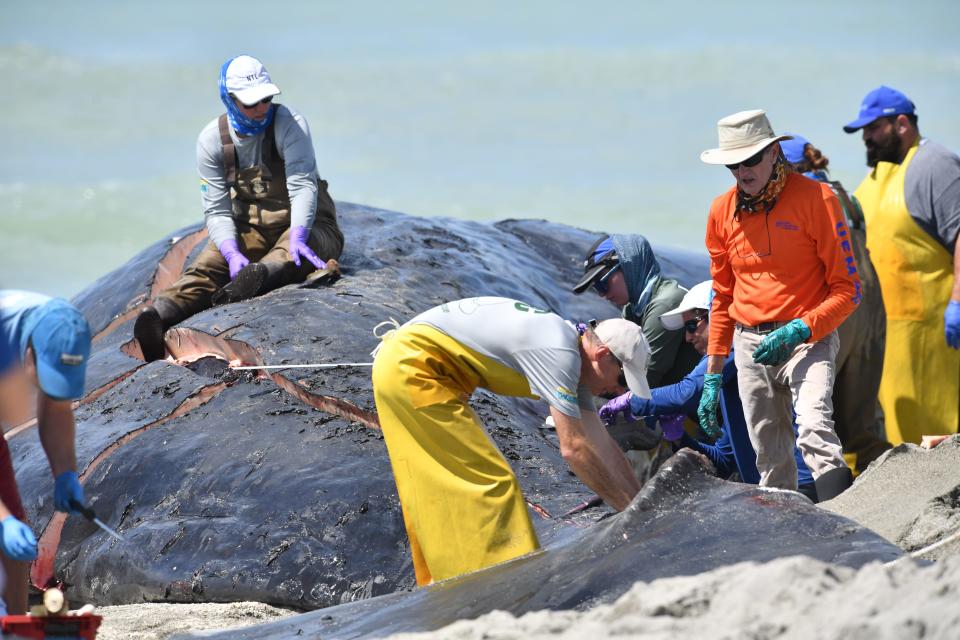
The whale, a male measuring around 44 feet long and 70,000 pounds, was immobile by early Monday morning and had drifted a few feet ahead of the sandbar where it was originally spotted.
Officials confirmed the whale died of natural causes without a sedative, but the specific cause of death is still unknown.
By noon Monday an excavator began pulling the whale to shore by a rope. The whale's size made the maneuver difficult, and one rope snapped under the pressure.
The machine pulled the whale from several angles and eventually got it onto the shore. Officials planned to stay overnight to complete the necropsy, which could extend into Tuesday. Once the necropsy is complete a vessel will tow the remains at least 10 miles offshore.
Gretchen Lovewell, manager for the Mote Marine Laboratory's Stranding Investigations Program, said an initial look at the whale onshore revealed little. Scientists determined only what was already visible, she said, and will know more after weeks, and perhaps months, of testing.
"We're problem-solving as we go," Lovewell said. "It's male and it's extremely skinny. That's all we can tell for now."
With the whale noticeably thin and clearly struggling on Sunday, Lovewell said rescue efforts were nearly impossible. Now, she said, all officials can do is study the whale and try to determine why it was near shore in the first place.
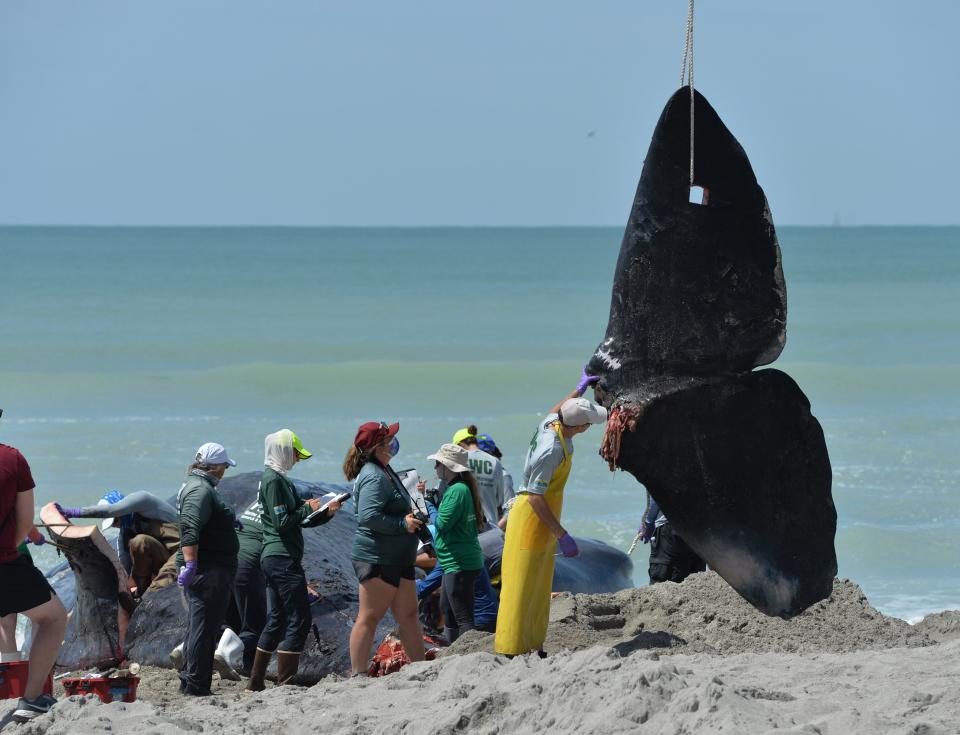
"It's a gut punch," Lovewell said. "We desperately wanted to get to it yesterday and simply couldn't."
On Sunday afternoon, officials with the Florida Fish and Wildlife Conservation Commission said high winds made seas too rough to approach the whale to give it a sedative.
Denise Boyd, an assistant research associate with the FWC Marine Mammal Program, said the whale likely beached itself because it was already dying. With no energy to swim, Boyd said the whale would’ve drowned if it were pushed back out to sea.
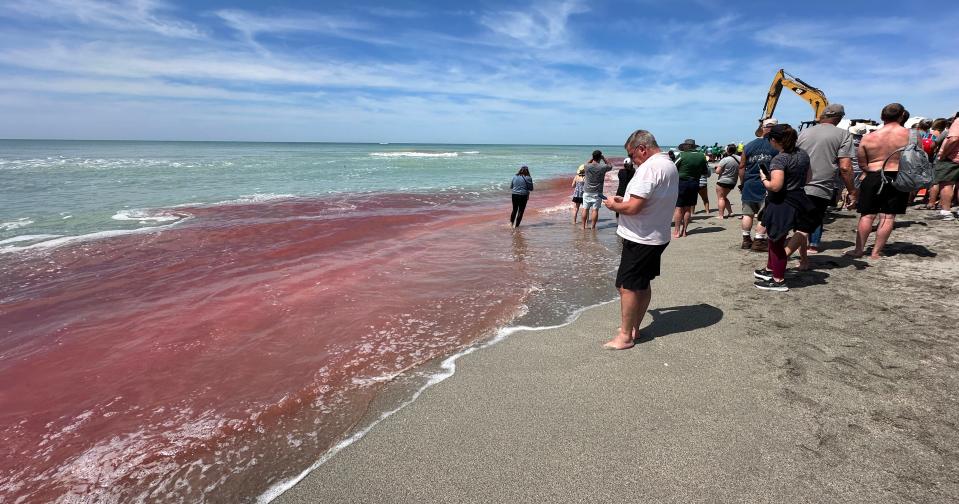
“If an animal beaches itself, it is almost always a clear indication that they’re in distress or they’re actually in the process of dying,” Boyd. “We did everything in our power to prevent any suffering, but this is just the natural process.”
Scientists and officials from the Florida Fish and Wildlife Conservation, NOAA, Mote, local law enforcement and other agencies prepared early Monday to transport the whale onto the shore.
Whale first spotted Sunday: 50-foot sperm whale beached off of Venice near Service Club Park not expected to survive
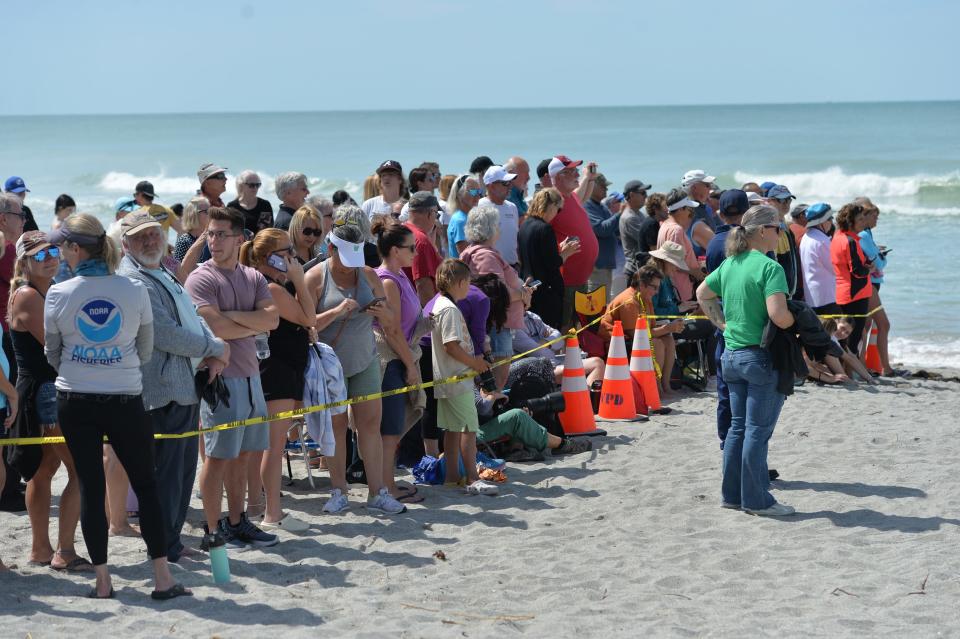
A still-growing crowd of around 50 spectators circled the roped-off section of Venice Beach to catch a glimpse of the whale: the first spotted in the southeast U.S. since 2008. Most were solemn when news of the whale’s death spread.
Suzie Schultz, a part-time Venice resident, arrived early at the beach hoping for a miraculous rescue. It’s unfortunate, she said, that this wouldn’t be the case.
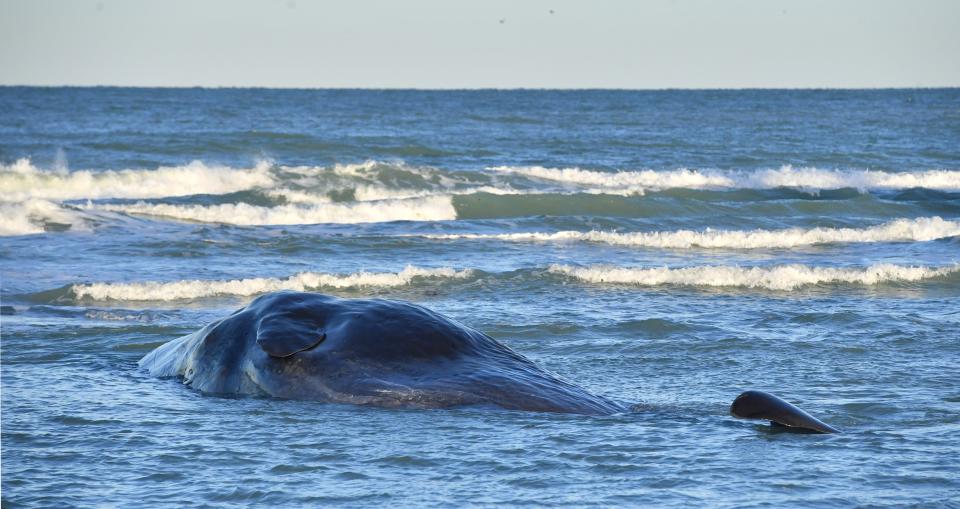
“Just sad,” Shultz said. “Would’ve rather seen it swimming out there and blowing water out its blowhole.”
Contact Herald-Tribune Growth and Development Reporter Heather Bushman at hbushman@gannett.com,. Follow her on Twitter @hmb_1013.
This article originally appeared on Sarasota Herald-Tribune: Beached sperm whale in Venice confirmed dead, officials will necropsy

